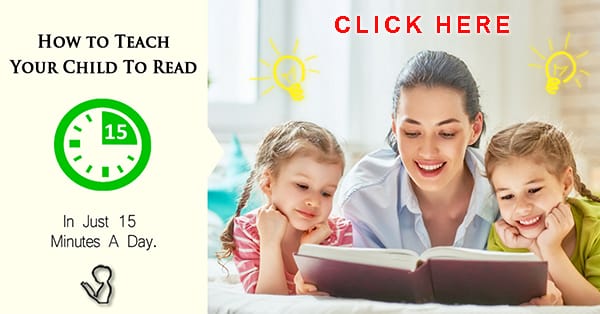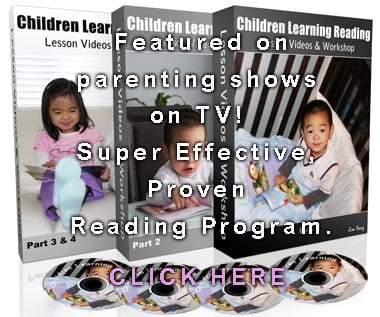What is the Best Program to Teach Reading? Exploring Effective Programs
What is the Best Program to Teach Reading? Reading is a critical skill for success in school and life. While there is no single best program to teach reading, there are a variety of approaches and resources that can be used to help students of all ages learn to read.
From phonics-based instruction to online tools and apps, there are many wonderful options available to help students become successful readers. In this article, we will explore some of the best programs to teach reading, including their features and benefits.

How 100 Easy Lessons Can Help Teach Children to Read
![]()
Are you looking for a way to help your little ones learn to read? You’re in luck! Reading is one of the most important foundational skills for children to have, and with the right support, your kids can master it in no time.
One of the best tools for teaching children to read is the “100 Easy Lessons” program. This program has been around for decades and is a proven way to help children learn to read quickly and effectively. The program starts with simple words and builds up to full sentences. It helps children to learn to recognize words, read them, and comprehend what they’re reading.
So how can this program help your kids? Here are just a few of the benefits:
- 1. It’s Easy to Follow: The lessons are simple and straightforward, so your child can easily follow along.
- 2. It’s Fun: Each lesson is engaging and interactive, so your child will look forward to doing the lessons.
- 3. It’s Structured: The lessons are organized in a way that gradually builds on each concept, so your child can progress quickly and confidently.
- 4. It’s Comprehensive: The program covers all the basics of reading, from letter sounds to recognizing words, so your child will be ready to tackle any reading material.
With 100 Easy Lessons, your child can become a confident reader in no time. It has also a book.
Comparing Online Reading Programs for Children
![]()
Are you looking for an online reading program to help your children learn to read? With so many options out there, it can be hard to know which program to choose. To make it easier, we’ve put together a comparison of the top online reading programs for kids.
First up is Reading Eggs. This program is designed for children ages 3-7 and focuses on phonics and phonemic awareness. It uses fun activities, games, and rewards to keep kids engaged and motivated. The program includes over 2,000 lessons, and each lesson is designed to be short and easily digestible. Reading Eggs also offers parents the ability to track their child’s progress and adjust the difficulty level of the lessons.
Next is Reading Eggs Plus. This program is for ages 7-13 and focuses on comprehension. It uses leveled texts and engaging activities to help kids build their reading skills. The program includes over 1,000 stories, and each one is accompanied by quizzes and activities to help kids practice their skills. ReadingEggsPlus also offers parents the ability to track their child’s progress and adjust the difficulty level of the activities.
Finally, there’s ReadingIQ. This program is for ages 2-12 and focuses on a variety of reading skills, including phonics, comprehension, and vocabulary. It uses fun and interactive activities, as well as personalized book recommendations, to keep kids engaged. ReadingIQ also offers parents the ability to track their child’s progress and adjust the difficulty level of the activities.
So, which online reading program is right for your child? It really depends on their age and reading level. For younger kids, Reading Eggs and ReadingEggsPlus are good options. For older kids, ReadingIQ is a great choice. Whichever program you choose, you can be sure that your child will be getting an engaging and effective reading education.
Essential Reading Skills for Elementary and Middle School Students
![]()
Reading is an essential skill for students of all ages. Whether you’re just starting out in elementary school or are a seasoned middle schooler, reading is a crucial part of academic success. Here are some reading skills that will help you get the most out of your reading assignments:
- 1. Read actively. Reading actively means engaging with the text as you read. This means making connections between what you’re reading and your own experiences, asking questions, and making predictions about what might happen next.
- 2. Take notes. Taking notes while you read can help you remember important points and better understand the material. It can also help you keep track of your progress.
- 3. Read with purpose. Before you start reading, think about why you’re reading. Are you reading to learn something new, or to review concepts you’re already familiar with? Knowing why you’re reading can help you focus and stay on task.
- 4. Use context clues. If you come across a word you don’t know, don’t give up! Instead, look for clues in the surrounding text that can help you figure out the meaning of the word.
- 5. Read aloud. When you’re reading challenging material, try reading it aloud. This can help you better understand what you’re reading and remember it better.
By developing these reading skills, you’ll be well-prepared to tackle any reading assignment that comes your way.
Teaching Critical Reading Skills to Children
![]()
Teaching critical reading skills to children can be a daunting task, but it’s an important one. Developing these skills in children can help them become more independent readers and learners.
As adults, we often take for granted our own critical reading skills. We understand the context of what we are reading, anticipate what will come next, and have the ability to make connections between different pieces of text. These skills are essential for a productive and enjoyable reading experience, and they’re something that we can help children acquire with a bit of effort.
One way to start teaching critical reading skills to children is to use books that are of interest to them. By providing books that they are motivated to read, you can help them build their own critical reading skills. Ask them questions while they’re reading, such as “What do you think will happen next?” or “What do you think the character’s motivation is?” This will help them to think more deeply about the text and develop their critical thinking skills.
In addition to asking questions, you can also provide activities that encourage children to make connections between different pieces of text. For example, you could give them a list of characters and ask them to create a timeline of events. Or, you could give them a list of words and ask them to create a story using those words. These activities will help children think critically about the text and make connections between different pieces of text.
Finally, be sure to give children plenty of time to read and discuss their books. Encourage them to ask questions and express their thoughts and opinions. This will help them develop their own understanding of the text and feel more confident in their reading skills.
The Benefits of Reading Programs for Kids
![]()
Reading is an essential part of any child’s life, and reading programs provide numerous benefits for kids of all ages. Whether it’s through the library, schools, or independent organizations, reading programs are a great way to support and encourage children to become literate.
One of the most obvious benefits of reading programs is that they encourage kids to read books. Reading programs often include incentives and rewards, such as bookmarks or buttons, to encourage kids to read more. This can help them develop a love of reading and an appreciation for literature. Additionally, reading programs can provide access to a variety of books that may not be available to children in other areas.
Reading programs also give kids the opportunity to interact with each other and share their love of reading. Through book clubs, book talks, and other activities, kids can discuss books and their favorite characters. This can help foster a love of reading, as well as a sense of community and camaraderie among readers.
Reading programs also provide children with the opportunity to practice their reading skills in a safe and supportive environment. By reading aloud or participating in activities such as dramatizations, children can practice reading fluency and comprehension. This can help them become better readers and better students.
Finally, reading programs can help build children’s confidence and self-esteem. By participating in reading activities, kids can feel proud of their accomplishments and learn to take pride in their work. This can help them become better learners and more successful in school.
Reading programs can be a great way to support and encourage kids to become literate and develop a love of reading. So, if you’re looking for a fun and engaging way to support your kids’ reading skills, consider enrolling them in a reading program!
How Reading Eggs Can Help Kids Learn to Read
![]()
Are you looking for ways to help your kids learn to read? Reading Eggs can be a great option for giving your children an interactive and fun way to learn how to read.
What is Reading Eggs?
Reading Eggs is an online reading program designed specifically for children aged 3 to 13. It’s designed to help kids learn to read by using a series of fun activities and games that encourages and rewards kids for their progress. It follows a comprehensive step-by-step program and features a variety of activities that offer effective learning and practice of essential literacy skills.
How Does Reading Eggs Help Kids Learn to Read?
Reading Eggs is designed to help kids learn to read by providing an interactive and fun learning experience. It uses gamification techniques to make learning to read fun and engaging. Kids can explore the world of Reading Eggs through a variety of activities and games that focus on a range of literacy skills, including phonics, sight words, and comprehension.
The program also provides kids with personalized instruction and tailored learning paths. It uses a rewards system to motivate and encourage kids to keep learning and track their progress.
Reading Eggs also offers a suite of tools designed to support parents and teachers. These tools include lesson plans, progress reports, and assessment tools that help parents and teachers track their students’ progress and identify areas of improvement.
The Benefits of Reading Eggs
Reading Eggs offers a range of benefits for children learning to read. It’s designed to provide a fun and engaging experience that helps kids master essential literacy skills. It also provides personalized instruction and tailored learning paths that help kids stay motivated and make progress.
In addition, Reading Eggs provides a suite of tools that can help parents and teachers track their students’ progress and identify areas of improvement. The program also offers a rewards system that helps motivate and encourage kids to keep learning.
If you’re looking for an effective and fun way to help your kids learn to read, Reading Eggs can be a great option. With its interactive activities and games, personalized instruction, and engaging rewards system, it’s sure to make learning to read an enjoyable experience for your kids.
Frequently Asked Questions
![]()
1. What is the best program to teach reading?
The best program to teach reading will depend on the individual needs of the student. There are many different programs available to teach reading, such as phonics-based programs, whole-language-based programs, and blended programs. Each program has its own set of advantages and disadvantages.
2. How can I find the best program to teach reading?
You can find the best program to teach reading by researching available programs, talking to experts in the field, and consulting with other educators who have experience with different programs. Additionally, you can find reviews online of different programs and read about other people’s experiences.
3. What should I look for in a program to teach reading?
When choosing a program to teach reading, you should look for one that is tailored to the individual needs of the student. It should also provide a comprehensive approach to reading instruction, including phonics, vocabulary, and comprehension. Additionally, the program should be engaging and interactive.
4. How long does it take to learn to read using a program?
The amount of time it takes to learn to read using a program will vary depending on the individual’s skill level and the program’s effectiveness. However, most programs focus on mastering basic reading skills within a few months.
5. Are there any programs that are free to use?
Yes, there are some programs available for free to use. Many libraries have free online resources that can be used to teach reading, such as books, articles, and videos. Additionally, some schools offer free reading programs for students.
6. Are there any programs that can be used at home?
Yes, there are many programs available for use at home. These programs can be used to supplement classroom instruction and provide additional support for students. Many of these programs are available as apps, websites, and books.
Conclusion: What is the Best Program to Teach Reading?
![]()
In conclusion, the best program to teach reading is one that is tailored to meet the individual needs of every student and that is grounded in evidence-based practices. It should involve a combination of explicit instruction, small group instruction, and plentiful opportunities for independent practice. This type of program should also provide students with access to books and other materials that are both engaging and relevant to their lives.
Finally, the program should continually assess the student’s progress and adjust the instruction accordingly. With the right program, every student can become a successful reader.



